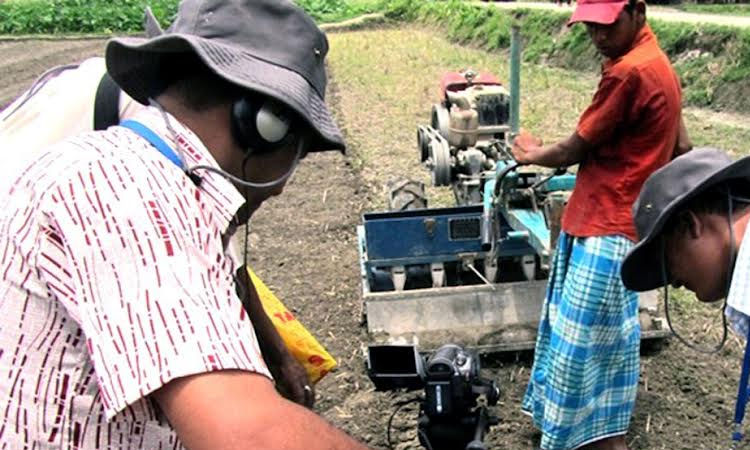News Flash
News Flash

By Md Mamun Islam
RANGPUR, Oct 14, 2025 (BSS) – Bangladesh is on the right track in ensuring long-term sustainable food security for its growing population by addressing the adverse impacts of climate change that threatens global food security.
Talking to BSS, experts, researchers and scientists said that the development of new methods, technologies and stress-tolerant crop varieties through continuous research is effectively contributing to increasing crop production in the country.
The accelerating rate of climate change cannot be slowed overnight, and while positive results from global efforts may begin to slowly improve the situation over time, agricultural production must continue and increase to ensure food security.
Bangladeshi experts, researchers and scientists have laid emphasis on innovation of newer ways and technologies for cultivation of stress tolerance crops and popularise those among farmers to keep food production on the rise.
Independence Award 2018 Medal (food security) winner rice scientist Dr MA Mazid said changing climate could cause severe natural imbalances on agri-production.
He fears that the adverse effects of climate change on agriculture are even unimaginable and could be so severe that the entire agricultural sector could collapse. He advises the global community to take the issue with the utmost seriousness.
"Considering all these negative impacts of climate change, Bangladesh has taken some far-sighted steps and our researchers and scientists have achieved success in developing new technologies and stress-tolerant crop varieties to increase food production," he said.
For example, innovation, successful field trials, and popularization of flood-tolerant rice varieties have helped Bangladesh sustainably increase rice production over the past decade, thereby protecting the Aman rice crop from flood damage.
Executive Director of North Bengal Institute of Development Studies Krishibid Dr Syed Samsuzzaman said that climate change has already affected agriculture, navigation, ecosystems, environment and groundwater levels worldwide.
As a result, rainfall, floods, cyclones, droughts, cold and hot, sea and surface temperatures, water pollution, water and soil salinity, aquatic systems, river siltation and drying up, and groundwater levels have been affected severely.
The situation is deteriorating rapidly due to melting of ice due to increasing temperatures and huge emissions of greenhouse gases like carbon dioxide, methane, nitrous oxide, hydro-fluoro-carbons, per-fluoro-carbons, sulfur hexa-fluoride.
"In such deteriorating conditions, Bangladesh has placed maximum emphasis on developing stress-tolerant crop varieties and innovating new technologies and pest management methods to increase agri-production under adverse conditions," he added.
Stress-tolerant crop varieties developed by Bangladeshi scientists and researchers, such as flood-tolerant rice, drought-tolerant rice, salinity-tolerant rice, and other stress-tolerant crops like maize and wheat, are being successfully cultivated, boosting the country’s food production.
Md Mamunur Rashid, a PhD Fellow in the Department of Agricultural Extension at Dinajpur Haji Mohammad Danesh University of Science and Technology described the chronological background of climate change and its adverse effects on agriculture and other sectors worldwide.
Mamunur Rashid, also an environmental expert, said the adverse impact of climate change could be unimaginable, so severe and millions of times worse than anything experienced so far, and could lead to the collapse of the agricultural sector.
"Bangladesh is continuing its efforts to address the situation by developing new methods and technologies and stress-tolerant crop varieties and mechanisation of agriculture to increase food production," he said.
He also urged the global community and every nation to take the issue with utmost seriousness everywhere.
The experts said climate change has also changed periods of appearances of different seasons, including crop farming periods, causing concern to the agriculture sector that might suffer further and severe setbacks in course of time.
Experts also said that climate change has also changed the timing of the emergence of different seasons, including the period of crop cultivation. It is a cause for concern for the agricultural sector, which could face more serious losses over time.
They said that to achieve sustainable food security, there is no alternative to continuing to increase agricultural production under deteriorating climate conditions, innovating new technologies, methods, and stress-tolerant crops for all-season cultivation.